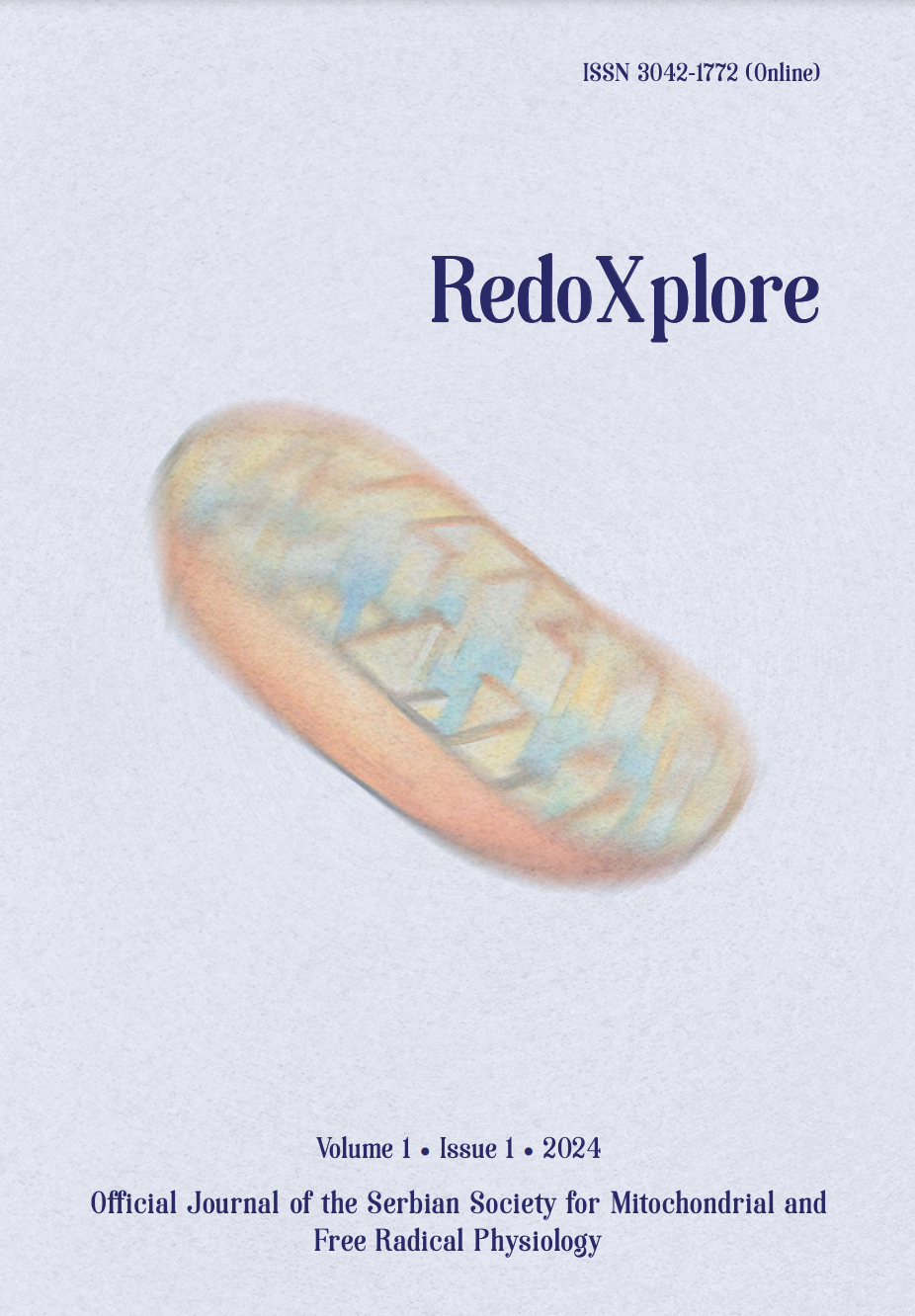Current issue

Volume 1, Issue 1, 2024
Online ISSN: 3042-1772
Volume 1 , Issue 1, (2024)
Published: 29.08.2024.
Open Access
All issues
Contents
29.08.2024.
Professional paper
DIFFERENT DEGREES OF OXIDATION CAUSE DIFFERENT CELL TRANSFORMATIONS AND FORMATION OF MICROPARTICLES
Oxidative stress (OS) has a significant impact on the lifespan and physical fitness of living organisms. It is commonly associated with ageing and can lead to changes in the functionality of red blood cells (RBCs). The precise mechanisms underlying these changes are not fully understood. Unlike mammals, avian RBCs have a nucleus and functional mitochondria that regulate the cellular response to oxidative stress. In this study, we examined the effects of OS on red blood cells from adult female quail (Coturnix japonica, n=12). We used flow cytometry to analyze the formation of OS-induced microparticles and RBC transformation. We also evaluated band 3 clustering and phosphatidylserine externalization at the cell surface using eosin-5-maleimide and Annexin-V fluorescent probes, respectively. In addition, we analyzed band 3 clustering using confocal microscopy. We used a laser diffraction-based method to analyze cell deformability, and we characterized hemoglobin species spectrophotometrically. We found that OS caused band 3 clustering, microparticle formation, and phosphatidylserine release onto the cell membrane. The microparticles formed under the influence of oxidants differed from those formed under the influence of A23187 (calcium ionophore). The rate of microparticle formation and the onset of osmotic rigidity depended on the oxidant concentration. Erythrocyte-derived microparticles contained hemoglobin oxidized to hemichrome (HbChr). Overall, these findings demonstrate that avian erythrocytes undergo different processes during oxidative stress, depending on the level of oxidation. These differences are due to variations in cellular transformations and the formation of different types of microparticles. This research was supported by the Russian Fund for Basic Researches (grant no. 23-15-00142)
Anastasiya Volkova, Irina Iskortseva, Diana Mikhailova, Aleksandra Andreyeva, Igor Mindukshev





